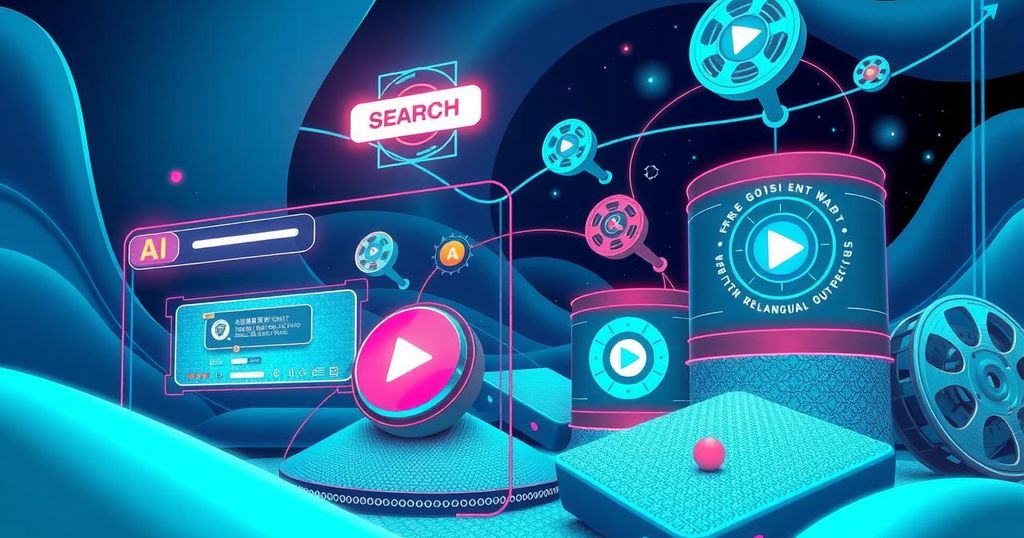Media Execs Discuss How AI Is Transforming the Industry
Media executives are examining how AI is transforming the industry, with applications ranging from personalized content recommendations to smarter search features. Notably, execs from major platforms like YouTube and Tubi are exploring AI’s potential to enhance user experience and content discovery. While some worry about AI’s impact on traditional creative processes, leaders emphasize the opportunities it brings to democratize high-quality production approaches, enabling broader global reach.
In the rapidly evolving landscape of the media industry, AI has become a central focus for many execs grappling with its implications. Recently, eleven leaders from companies including YouTube and Tubi shared insights on how they’re navigating the AI wave and the changes it brings. From enhanced recommendations to automated captions, the possibilities seem vast and exciting.
Bill Abbott, CEO of Great American Media, described the current phase of generative AI as just the beginning. “We’re in the first inning of generative AI. It’s going to explode—absolutely explode—and people do not see it coming,” he stated. Indeed, the potential of AI tech hasn’t fully hit the mainstream, yet some industry veterans think it should be on the radar.
Media and entertainment companies are already leveraging AI to reshape content accessibility. For instance, firms like A+E Global Media and YouTube are deploying AI to refine recommendations and enhance global content delivery. As audiences swim through an overwhelming sea of options, AI is touted as a lifebuoy, helping to better tailor choices based on interests, viewing habits, and even the time of day.
Adam Lewinson from Tubi highlighted this transformation, noting that the era is shifting from peak TV to a more personalized experience. Tubi has been applying machine learning to customize user interfaces for about eight years, progressively improving the sophistication of its suggestions. Similar strides are being made at Crunchyroll, which also focuses on personalized viewing recommendations.
Meanwhile, smarter search capabilities are emerging, with platforms like Netflix adopting AI to enhance content discovery. Viewers can now search for titles using natural language, like “funny but not too cheesy,” which makes finding something to watch faster and easier. Tony Huidor of Cineverse mentions their new AI-powered search engine, CineSearch, that other streamers can license—it’s a tool designed to make the search process more intuitive.
A/B testing, historically a tedious process, is also gaining a technological boost from AI. With this, video platforms can generate hundreds or even thousands of ad variations to figure out which versions resonate best with audiences. Abhishek Neralla of A+E Global Media noted the time-saving aspects of leveraging AI in creative testing, facilitating more effective advertising strategies.
One of the most exciting prospects of AI is its ability to help globalize content. Creators can now use AI to include subtitles and dubbing in multiple languages almost instantly, which opens a door to international audiences. Fede Goldenberg of YouTube highlighted that this innovation allows for a richer global interaction, benefitting both English-speaking and non-English creators alike.
AI’s potential isn’t without concerns, especially regarding its implications for creative authenticity. Joshua Reader, CEO of CreatorCut, acknowledged skepticism about AI-generated materials drawing focus from human-made works. Nevertheless, AI tools are already in use in Hollywood, especially during post-production for films—some even used in this year’s Oscar nominees.
Netflix co-CEO Ted Sarandos sees AI as a new frontier for creativity rather than just cost-cutting. In discussing visual effects, he expressed that it now democratizes high-quality production techniques that previously only larger budgets could afford. Overall, as AI continues its march forward, its role in shaping the industry—creatively and operationally—appears to be just beginning.
The media landscape is undeniably shifting as AI technologies infiltrate various aspects of content creation and distribution. Leaders in the industry recognize the critical role AI can play in personalizing user experiences—from smarter recommendations to intelligent search capabilities. As AI gives creators the tools to connect globally and streamline production processes, it’s clear that while the journey ahead holds challenges, it’s also brimming with opportunities for innovation. Media executives are just scratching the surface of what AI can achieve, hinting at a bright, albeit complex, future for the industry.
Original Source: www.businessinsider.com




Post Comment